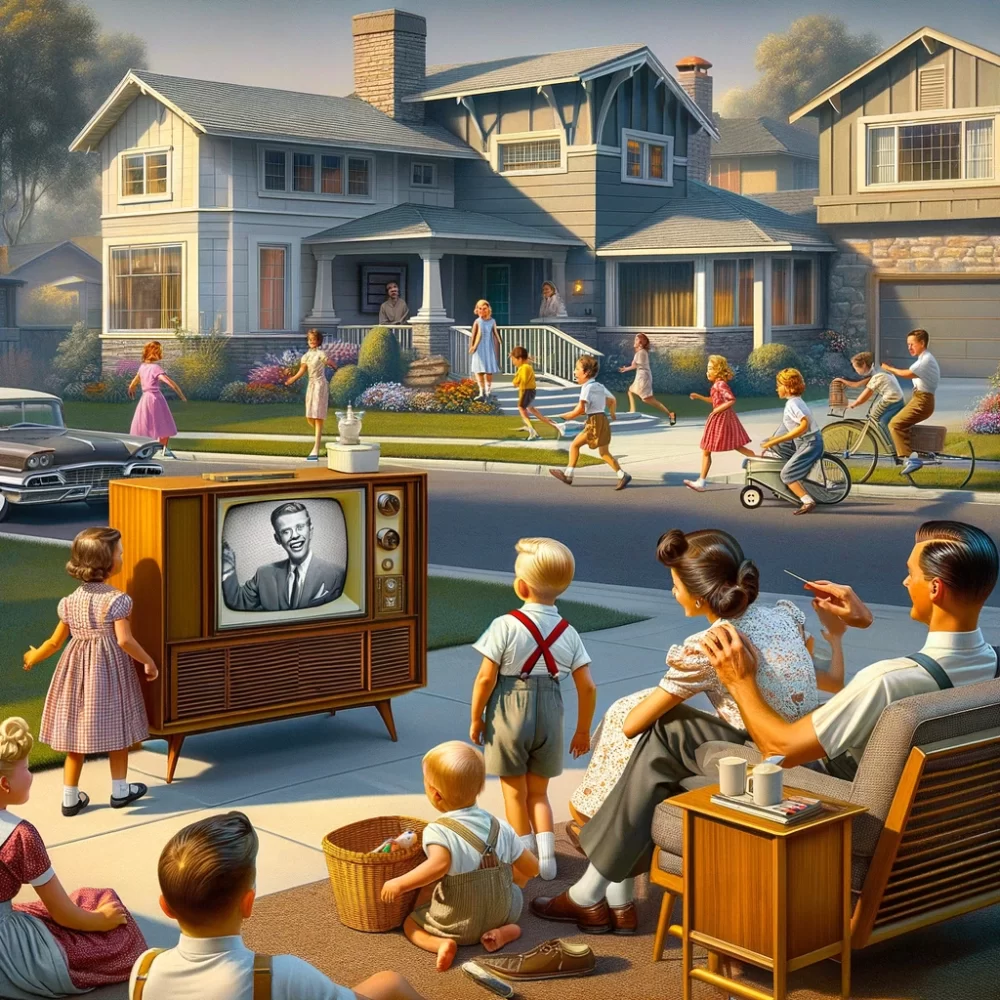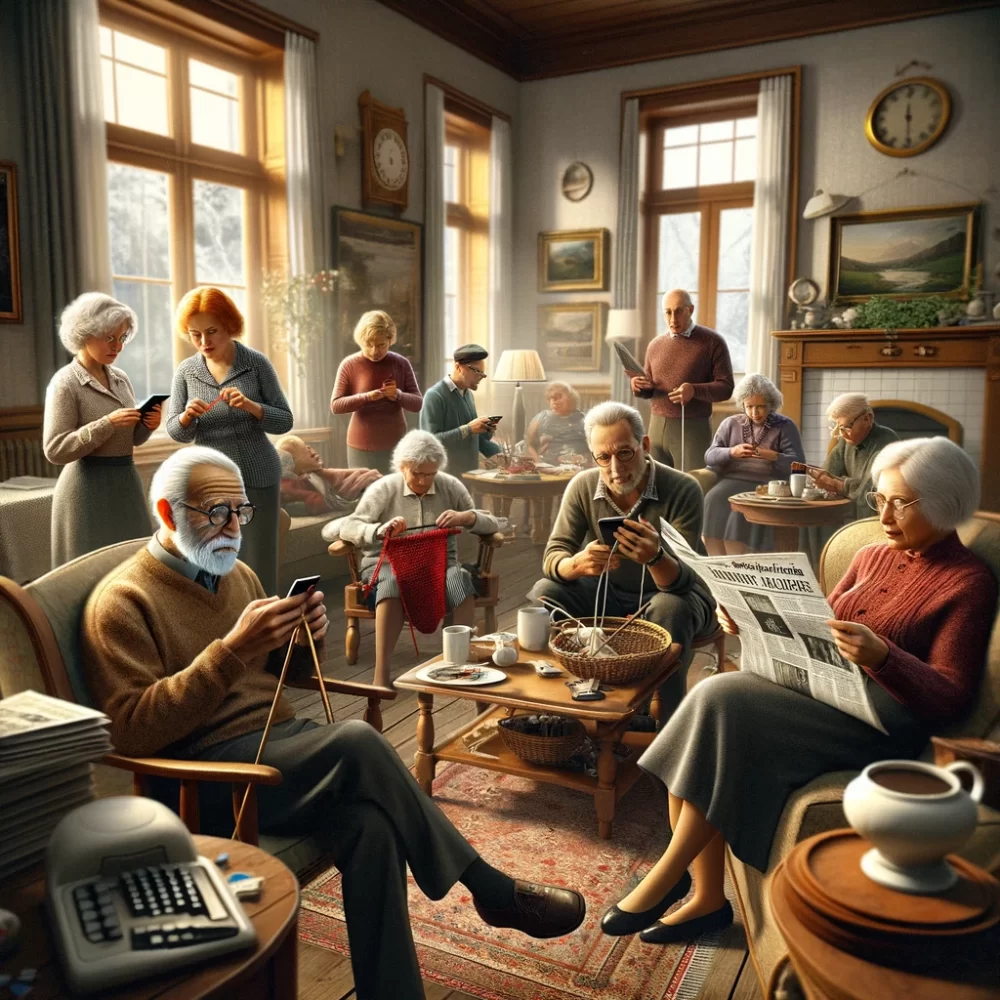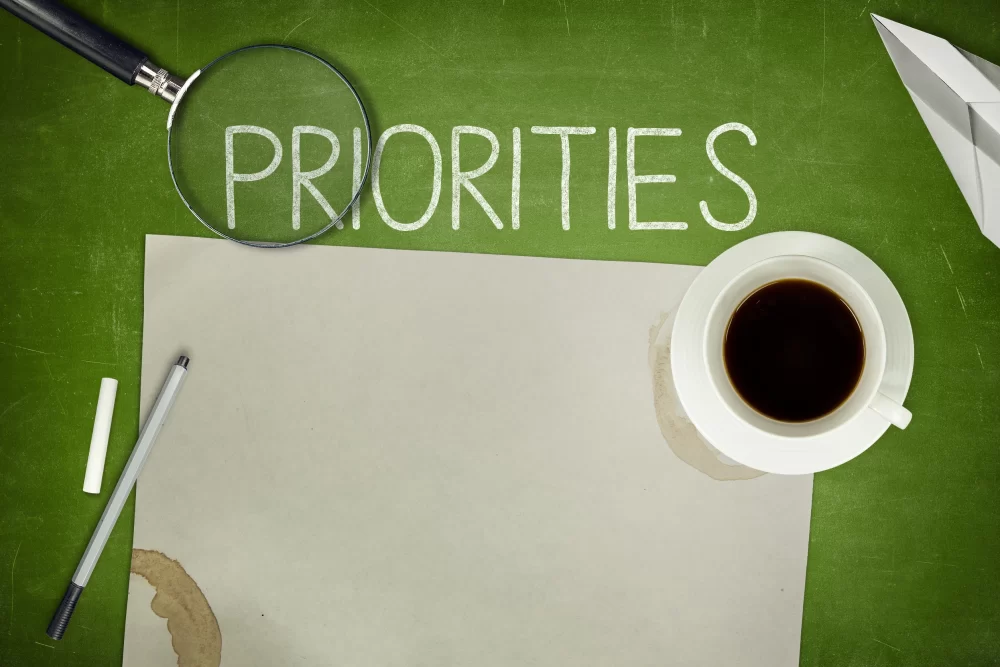
In the diverse spectrum of social awareness, Baby Boomers often stand apart from the woke movement that’s more prevalent among younger generations. Here’s an expanded look into why this generation, growing up in a markedly different era, tends to be less concerned with the woke culture.
1. Different Cultural Upbringing

Baby Boomers were raised during a time when societal norms largely revolved around traditional values and roles. Their experiences during the formative years were influenced by post-war recovery and economic growth, which shaped a different set of priorities and perspectives compared to the current focus on social justice and equality.
2. Disconnection from Modern Social Media

This generation’s lesser involvement in social media platforms means they are less exposed to the constant flow of woke dialogue and activism that permeates these platforms. They rely more on traditional forms of communication and media, which often do not emphasize woke culture.
3. Misunderstanding of the Term

The term ‘woke’ itself, often used in contemporary and online discourse, might not resonate with many Boomers. This generational gap in understanding contemporary jargon leads to a disconnect or disinterest in the movement.
4. Prioritization of Stability Over Change

Having worked hard to build their lives and careers, Boomers often prioritize maintaining what they have achieved. They might view the upheavals or changes advocated by woke culture as threats to the stability they value and have worked towards.
5. Different Life Priorities

As retirement and health issues become more pressing with age, Boomers are likely to be more focused on these aspects rather than actively engaging in the social or political activism that defines wokeness. Their priorities are more immediate and personal at this stage in life.
6. Skepticism Towards Rapid Social Changes

The speed and nature of social changes advocated by woke culture can be overwhelming or viewed as impractical by many Boomers. They prefer more traditional, gradual approaches to change, shaped by their life experiences.
7. Belief in Meritocracy

The belief that hard work and talent lead to success is deeply ingrained in many Boomers. They may view the woke culture’s emphasis on systemic barriers as a challenge to the concept of meritocracy, which they hold dear.
8. Discomfort with Political Correctness

The emphasis within woke culture on careful language and political correctness can seem restrictive to Boomers. They often value direct communication and may view these norms as an unnecessary constraint on free expression.
9. Reliance on Traditional News Sources

Boomers’ preference for traditional newspapers and television news over online media means they are less exposed to the woke narratives prevalent on digital platforms. This difference in media consumption shapes their awareness and opinions on social issues.
10. View of Wokeness as a Youth Trend

Many Boomers see wokeness as part of contemporary youth culture, something that doesn’t necessarily apply to or affect their daily lives. They view it as a passing phase, not something with lasting impact or relevance to them.
11. Different Definitions of Social Awareness

The social movements that Boomers participated in or witnessed, like civil rights or anti-war protests, define their understanding of activism and social awareness. They often view these movements as more tangible and impactful compared to what they perceive as the more abstract nature of woke culture.
12. Perceived Extremism

Some Boomers view aspects of woke culture as too radical or far removed from their understanding of social activism. This perception of extremism can lead to reluctance in accepting or engaging with woke ideas.
13. Legacy and Tradition

Preserving the legacy and traditions they grew up with and built is often a priority for Boomers. They may see woke culture, with its focus on dismantling certain traditional structures, as a threat to these legacies.
14. Feeling of Being Misunderstood

Feeling stereotyped or misunderstood by younger, more woke generations can create a sense of disconnect for Boomers. This lack of mutual understanding leads to a disinterest in engaging with woke ideologies or practices.
Fostering Mutual Understanding Across Generations

The divide in understanding and interest in woke culture between Baby Boomers and younger generations underscores the need for open, intergenerational dialogue. Such conversations can foster mutual understanding and respect for diverse perspectives on social issues.
What are your thoughts on the generational divide in perceptions of wokeness? Join the conversation and explore how different age groups can find common ground in understanding social issues.
Tamila McDonald is a U.S. Army veteran with 20 years of service, including five years as a military financial advisor. After retiring from the Army, she spent eight years as an AFCPE-certified personal financial advisor for wounded warriors and their families. Now she writes about personal finance and benefits programs for numerous financial websites.
Comments